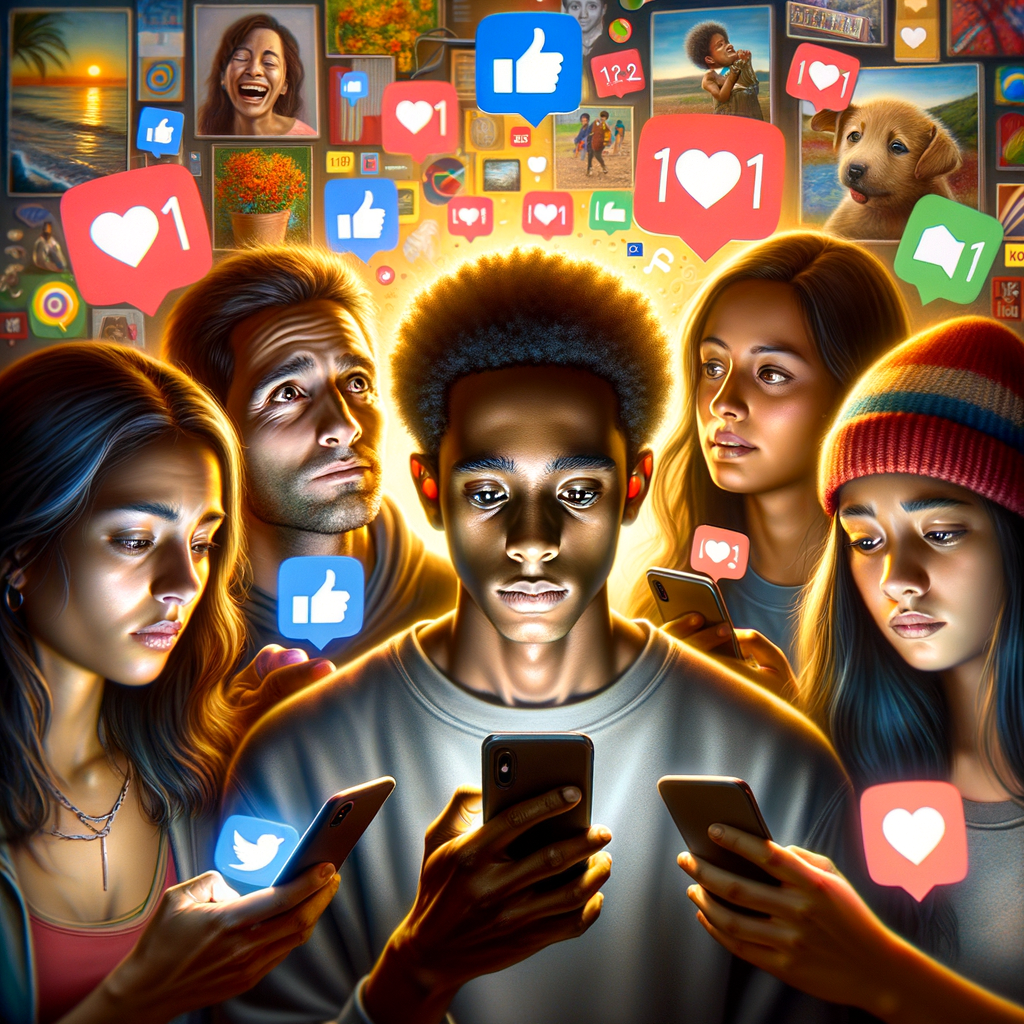How Social Media is Shaping Our Perceptions of Self-Worth and Identity
An In-Depth Exploration of the Effects of Digital Interaction on Personal Value
Introduction
In the modern age, social media has become a predominant force in shaping how individuals perceive themselves and their worth. Platforms such as Facebook, Instagram, and Twitter are not just tools for communication; they are instrumental in constructing our personal identities. In this blog post, we delve into how social media impacts our perceptions of self-worth and identity.
The Rise of Social Media
The last decade has witnessed an exponential growth of social media usage worldwide. As of 2023, there are over 4.5 billion users globally, which represents about 58% of the global population. With such reach, social media platforms have a profound capacity to influence societal norms and individual self-images.
- Accessibility: Social media is accessible to individuals across different backgrounds, ages, and regions.
- Interactivity: Users engage with content and receive immediate feedback, which impacts their perception of acceptance and worth.
- Curation of Identity: Each user has the ability to curate their online persona, showcasing only their highlights.
The Psychological Impacts of Social Media
As social media continues to influence daily life, its psychological impacts are becoming increasingly evident. Key areas affected include:
- Self-Esteem and Validation: The quest for likes and comments can significantly affect one’s feelings of self-worth. Research indicates that individuals often tie their self-esteem to the level of online validation they receive.
- Comparative Mindset: Social media platforms are rife with representations of success and beauty. This can lead to unhealthy comparisons, where users measure their worth against curated images presented by others.
- Anxiety and Depression: Constant exposure to idealized lifestyles can lead to feelings of inadequacy, contributing to anxiety and depressive symptoms among users.
Cultural Implications and Identity Construction
Social media not only shapes individual identities but also affects cultural narratives. The following points highlight significant implications:
- Shifting Norms: What is considered ideal or acceptable in society is increasingly influenced by social media trends and influencers.
- Microcultures: Social media allows for the formation of microcultures, where specific identities and communities thrive, leading to diversity in expressions of self.
- Political Activism: Social media empowers individuals to express their identities politically, mobilizing communities around shared values and beliefs.
Navigating the Digital Landscape Mindfully
Given the powerful effects of social media on self-worth and identity, it is essential to navigate these platforms mindfully. Here are some strategies:
- Limit Exposure: Set boundaries on the amount of time spent on social media each day.
- Cultivate Awareness: Be mindful of comparisons and recognize that what is seen online often does not reflect reality.
- Engage Positively: Follow accounts that promote positivity and authentic expressions of self, as this can buffer against negative feelings.
Conclusion
While social media can serve as a powerful tool for connection and self-expression, it is crucial to remain aware of its profound impact on our perceptions of self-worth and identity. By fostering mindful consumption of social media, individuals can navigate its complexities more effectively, ensuring it enhances rather than diminishes their sense of self. As we continue to engage in this digital landscape, cultivating a healthier relationship with social media is paramount for both personal and collective well-being.
There you have it… See what works for you…
Campbell M Gold
To Create Health, Wealth, Success, and Longevity through the Power of Your Subconscious Mind, Visit: Campbell M Gold.com
Visit The Store and see what else can be of help

